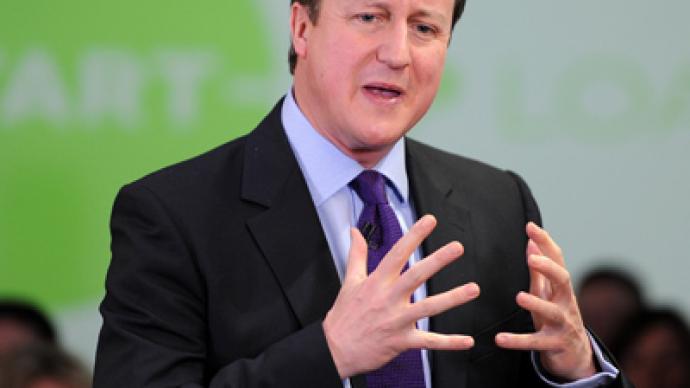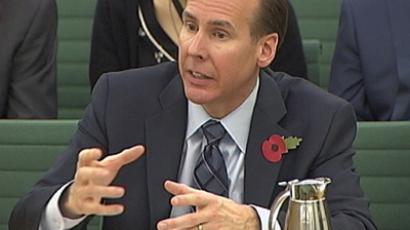Cameron to make ‘damn sure’ large corporations pay UK taxes

British Prime Minister David Cameron has blasted the world’s most powerful multinational corporations for lacking “moral scruples,” and has urged global action against “aggressive tax avoidance.”
His comments on Friday followed accusations by MPs on the Commons Public Accounts Committee that firms acted “immorally” in minimizing their UK tax bills.
According to the Committee, Starbucks paid just £8.6 million ($10.8 million) in corporate taxes in the UK in the last 14 years despite sales of £3 billion ($3.76 million). Internet giant Google reportedly paid £6 million in UK taxes on revenues of £395 million ($496 million). Amazon UK reported a turnover of £207 million ($260 million) in 2011, but its tax bill was just £1.8 million ($2.26 million).
During an appearance in Lancashire before business leaders and entrepreneurs, Cameron was asked why Starbucks and Amazon were allowed to avoid significant corporate tax burdens despite the massive scale of their operations in the UK.
“We have got to crack that, you’re absolutely right,” he replied.
Cameron said he will use his role as president of the G8 to make “damn sure” multinationals like Starbucks and Amazon pay their share of taxes for operations in the UK, and promised to put the issue “right at the top of the agenda” of this year’s summit.
"I’m chairing the G8 this year so I’m going to be getting the Americans and the French and the Germans and the Italians and the Japanese all to look at this together at how can we try and stop unfair tax farming practices,” British newspaper the Mirror quoted Cameron as saying.
In November, top US corporations faced tough questioning by British MPs who accused Google, Starbucks and Amazon of leaking tax revenues from the UK to havens abroad. The three businesses had previously received penalties for their tax avoidance schemes that were widely seen as a slap on the wrist.Starbucks bowed to public pressure last month and promised to reconsider its approach to UK taxes. The coffee chain, which has 700 outlets in the country, vowed to pay “a significant amount of tax during 2013 and 2014, regardless of whether the company is profitable,” Starbucks UK Managing Director Kris Engskov said. Engskov estimated that the amount of tax payments over the next two years would total £20 million (US$25.1 million).Economist and tax expert Richard Murphy of Tax Research UK did not share Cameron’s enthusiasm for the plan to combat tax avoidance by large foreign companies working in Britain, saying that the Prime Minister’s words meant nothing absent changes to basic tax avoidance rules.“The government is taking no steps to challenge these companies. The General Anti-Tax Avoidance Principle Bill that Michael Meacher MP put before the House of Commons and which I drafted would let them do that, but the government has opposed it,” the Tax Research UK website quoted Murphy as saying.This bill would establish a law that any financial arrangement made by a company or an individual must not have tax avoidance as its primary purpose, and would create a legal framework for assessing such arrangements.Murphy claimed the bill would tackle tax avoidance abuses, but also said that Cameron is doing nothing to ensure these companies pay more in taxes.“If anyone lacks moral scruples on tax avoidance it is David Cameron. And we’re all paying more tax as a result, and it’s his fault,” the economist wrote on Twitter.













